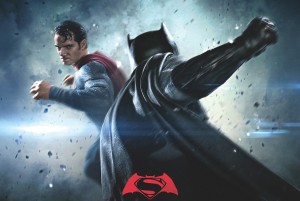Many saw Batman vs Superman: Dawn of Justice this last week (420+ million box office), a story about Bruce Wayne, a single man backed by wealth, angry determination and personal fortitude, taking on Superman, a very non-figurative manifestation of limitless power. It’s a story about a man so brilliantly competent, so grimly prepared, so unrelentingly intense, that even extreme power ultimately breaks before him or steers clear of him.
The American appeal of the single against the limitless power structure fuels the popularity of Raymond “Red” Reddington taking on The Cabal (“Blacklist”); Dexter Morgan taking on the Miami police department, FBI and dangerous serial killers (“Dexter”); Harvey Specter taking on corporate giants, hedge funds and the Justice Department (“Suits”); and others.
The appeal of these character psychologies is that they are gratifying affirmations that with enough preparation, competence and intensity, one’s fate is not dictated by powers beyond themself. That your personal autonomy isn’t just an illusion maintained by your psychology to keep it engaged. That ultimately, whatever tides and currents of the conglomerate monied interests and whoever happens to be in charge, doesn’t then just dictate the next thing to happen to you.
The current political spectacle, messy and uncivil as it’s decried sometimes, is one of the more interesting times in our country’s history. The last real populist, William Jennings Bryan (1896, over 100 years ago), ran on a platform of monetary policy against the banks at the time and against the gold standard. Deigned as “The Great Commoner”, a compelling orator, he ultimately lost to concerted efforts from both parties to stop him.
Right now, both party establishments (a rough term summarizing the traditional corporate donors, the superdelegates, and the massive political consultancy-media-advertisement-donor economy) find themselves at odds with populist candidates. One, running on a platform to excise this campaign economy from our politics completely, and the other, to pry away the international deal-making and domestic corporate policies from the wealthy elites and back in favor for the American worker. In regards to Bruce Wayne comparisons, both are angry, one is even wealthy.
Bruce Wayne’s anger is based on watching a Superman-created catastrophe, fueled by a lifelong fear of events greater than him taking people away from him (“about an alien who, if he wanted to, could burn the whole place down”). Lex Luthor joins his efforts to fight back against the new power dynamic (“if you forge a silver bullet […] you don’t need to depend on the kindness of monsters”). There is even an iconic scene where Superman descends from the sky, down in front of the Senate, the center for the nation’s democracy, with the public and the Senators only able to protest in word only or nervously watch. Even this ends in an explosion killing everyone except Superman, whose powers leave him unscathed as everything burns around him. This is the sense Americans have as factories leave non-coastal America and the nation continues to be plundered while the elite squirrel away billions off-shore.
This seems like an authoritarian theme, a political one, but ultimately it’s psychological. Namely, does a sense of autonomy mean anything if impossible-to-budge inertia backed by monied interests restrict your options to where your choices don’t meaningfully matter?
At one point in the movie, Bruce Wayne, rampaging through an army of smugglers with his wheeled war machine in a desolate dock district, finds his Bat-vehicle casually bouncing off an immovable Superman who tells him to hang up his cape and quit forever. A powerful force calmly plucks away Bruce Wayne’s autonomy and even labels it an act of mercy.
To that question of autonomy versus power, Bruce Wayne forges a kryptonite lance, prepares himself physically and mechanically, and engages in a fight with Superman that takes everything he’s got (at one point, he uses a literal kitchen sink). In the political scene, the non-centralized broadcast media (Twitter, YouTube, etc) has served as the establishment kryptonite enabling these two candidates to organize a true American populist movement. To which way it will go, will remain to be seen over the next seven months.
